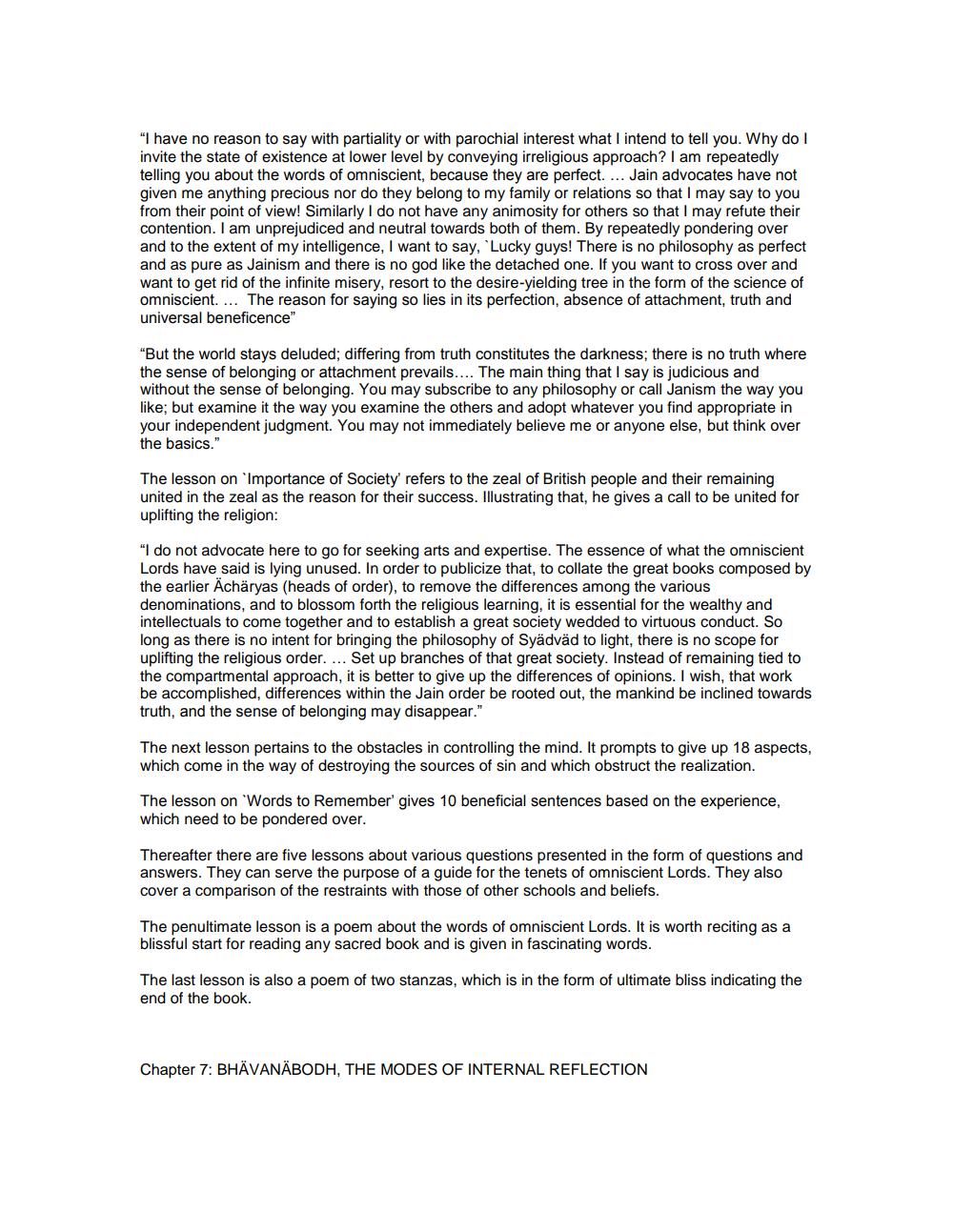________________
"I have no reason to say with partiality or with parochial interest what I intend to tell you. Why do I invite the state of existence at lower level by conveying irreligious approach? I am repeatedly telling you about the words of omniscient, because they are perfect. ... Jain advocates have not given me anything precious nor do they belong to my family or relations so that I may say to you from their point of view! Similarly I do not have any animosity for others so that I may refute their contention. I am unprejudiced and neutral towards both of them. By repeatedly pondering over and to the extent of my intelligence, I want to say, 'Lucky guys! There is no philosophy as perfect and as pure as Jainism and there is no god like the detached one. If you want to cross over and want to get rid of the infinite misery, resort to the desire-yielding tree in the form of the science of omniscient. ... The reason for saying so lies in its perfection, absence of attachment, truth and universal beneficence"
"But the world stays deluded; differing from truth constitutes the darkness; there is no truth where the sense of belonging or attachment prevails.... The main thing that I say is judicious and without the sense of belonging. You may subscribe to any philosophy or call Janism the way you like; but examine it the way you examine the others and adopt whatever you find appropriate in your independent judgment. You may not immediately believe me or anyone else, but think over the basics."
The lesson on 'Importance of Society' refers to the zeal of British people and their remaining united in the zeal as the reason for their success. Illustrating that, he gives a call to be united for uplifting the religion:
"I do not advocate here to go for seeking arts and expertise. The essence of what the omniscient Lords have said is lying unused. In order to publicize that, to collate the great books composed by the earlier Acharyas (heads of order), to remove the differences among the various denominations, and to blossom forth the religious learning, it is essential for the wealthy and intellectuals to come together and to establish a great society wedded to virtuous conduct. So long as there is no intent for bringing the philosophy of Syädväd to light, there is no scope for uplifting the religious order. ... Set up branches of that great society. Instead of remaining tied to the compartmental approach, it is better to give up the differences of opinions. I wish, that work be accomplished, differences within the Jain order be rooted out, the mankind be inclined towards truth, and the sense of belonging may disappear."
The next lesson pertains to the obstacles in controlling the mind. It prompts to give up 18 aspects, which come in the way of destroying the sources of sin and which obstruct the realization.
The lesson on 'Words to Remember' gives 10 beneficial sentences based on the experience, which need to be pondered over.
Thereafter there are five lessons about various questions presented in the form of questions and answers. They can serve the purpose of a guide for the tenets of omniscient Lords. They also cover a comparison of the restraints with those of other schools and beliefs.
The penultimate lesson is a poem about the words of omniscient Lords. It is worth reciting as a blissful start for reading any sacred book and is given in fascinating words.
The last lesson is also a poem of two stanzas, which is in the form of ultimate bliss indicating the end of the book.
Chapter 7: BHÄVANÄBODH, THE MODES OF INTERNAL REFLECTION




